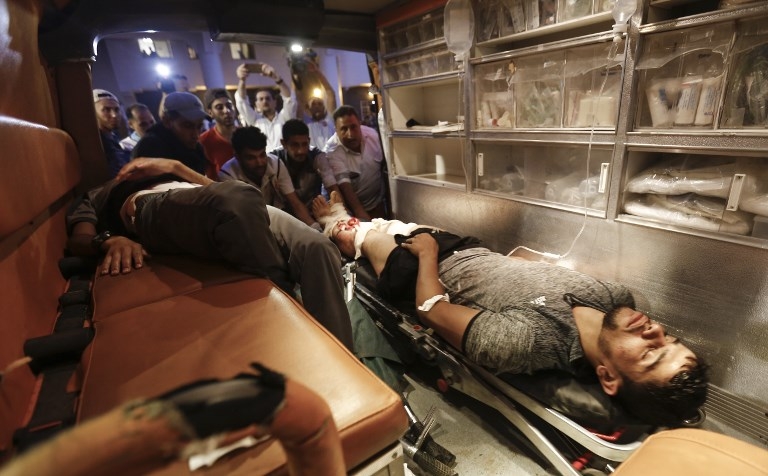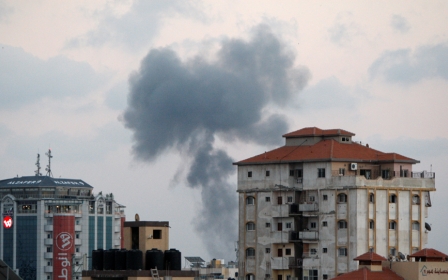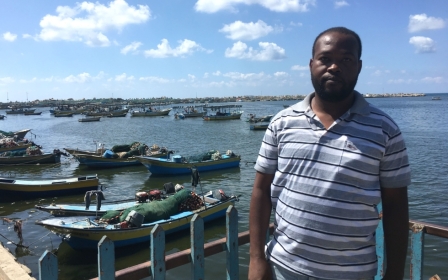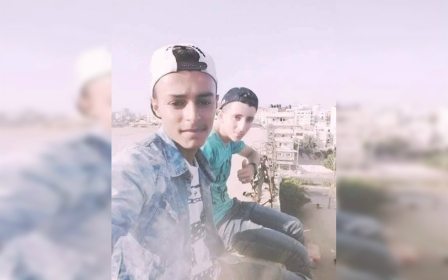Gaza truce holds after Israeli air strikes across Palestinian enclave

A ceasefire called by Hamas on Saturday continued to hold following a wave of deadly Israeli air strikes across the Gaza Strip on Friday.
The strikes was sparked by the death of an Israeli soldier shot dead by Palestinian militants near the Gaza border.
Israel did not confirm the deal announced by Gaza's rulers, which went into effect around midnight Friday reducing fears of a broader conflict.
But the Israeli army said tanks struck a Hamas observation point east of Gaza City on Saturday morning, saying it was in retaliation for an attempted border infiltration in northern Gaza.
There were no reports of injuries in the strike, and there was no major Israeli bombing campaign overnight or mortar fire from Gaza towards Israel.
"With Egyptian and UN efforts, we reached [an agreement] to return to the previous state of calm between the [Israeli] occupation and the Palestinian factions," Hamas spokesman Fawzi Barhoum said in a statement early on Saturday.
A senior Hamas official, speaking on condition of anonymity, told AFP the deal involved "the cessation of all forms of military escalation" including Israeli air strikes and Hamas mortars and rockets.
The source said that balloons and kites attached with incendiary devices, which Palestinians have been floating over the border for months to spark fires inside Israel, were not included in the agreement.
Israeli politicians have been calling for a fierce response to the kites and balloons, which have caused damage amounting hundreds of thousands of dollars.
Israel's army and Prime Minister Benjamin Netanyahu's office both declined to confirm the truce.
"All we can say is that there have been no incidents or Israeli attacks in the Gaza Strip since the last wave of air strikes on Friday night," a military spokeswoman told AFP.
Temporary reprieve
On Friday, three Hamas militants were killed as air raids sent fireballs exploding into the sky over Gaza, while Israel said rockets had been fired towards its territory.
A fourth Palestinian was shot dead in protests near the border.
The United Nations urged all sides to step "back from the brink" of war after months of increasing tensions.
The Israeli soldier, shot dead along the border in southern Gaza, was the first to be killed in and around the Palestinian enclave since a 2014 war between Israel and Hamas.
Friday's flare-up was the latest as demonstrations and clashes on the frontier since March have seen at least 149 Palestinians killed.
In response, the Israeli army said they struck 60 Hamas sites, including weapons manufacturing sites, a drone warehouse and a military operations room.
This came only a week after the most severe exchange of fire between Israel and Palestinian fighters in Gaza since the 2014 war.
Jason Greenblatt, US President Donald Trump's Middle East peace envoy, laid the blame for weeks of increasing tensions solely with Hamas.
"Hamas works relentlessly to destroy Israeli lives (& Gazans suffer as a result of Hamas)," he tweeted while offering condolences to the soldier's family.
Hamas and Israel have fought three wars since 2008, most recently in 2014.
Israel has tightened its already crippling blockade of Gaza in recent weeks as it seeks to pressure Hamas to end the incendiary kites and balloons.
Hugh Lovatt, Israel-Palestine fellow at the European Council on Foreign Relations think-tank, told AFP another round of conflict remained highly possible.
"The ceasefire is crucial and shows neither side wants war, but it's only a temporary reprieve.
"Unless it can be consolidated and translated into a more permanent agreement that includes an easing of Israeli restrictions then we will continue to witness ever more frequent flare ups."
New MEE newsletter: Jerusalem Dispatch
Sign up to get the latest insights and analysis on Israel-Palestine, alongside Turkey Unpacked and other MEE newsletters
Middle East Eye delivers independent and unrivalled coverage and analysis of the Middle East, North Africa and beyond. To learn more about republishing this content and the associated fees, please fill out this form. More about MEE can be found here.




